10 Strategies for Diversifying Income Streams for Your Small Business.

For small business owners and aspiring entrepreneurs, diversifying income streams is a key strategy to enhance stability and open up growth opportunities. You can be a Budgeting Boss or a P&L Pro, but if you don't have enough money coming IN, the rest of it really doesn't matter. That's why it's dangerous to put all your eggs in one basket. Having just one product or service can leave you vulnerable to changes in the market and industry disruptions. (Remember COVID?)
In this post, we're going to explore ten effective income stream diversification strategies that can provide your small business with increased financial security (and a bit more breathing room for you). They may not all be applicable to what you do, but even incorporating one or two can make the world of difference between omelets for breakfast…or egg on your face.
E-commerce and Online Sales
With everything going digital these days, establishing an e-commerce platform can significantly broaden your customer base an...
Hyperlocal Marketing: How to Drive Local Customers to Your Small Business
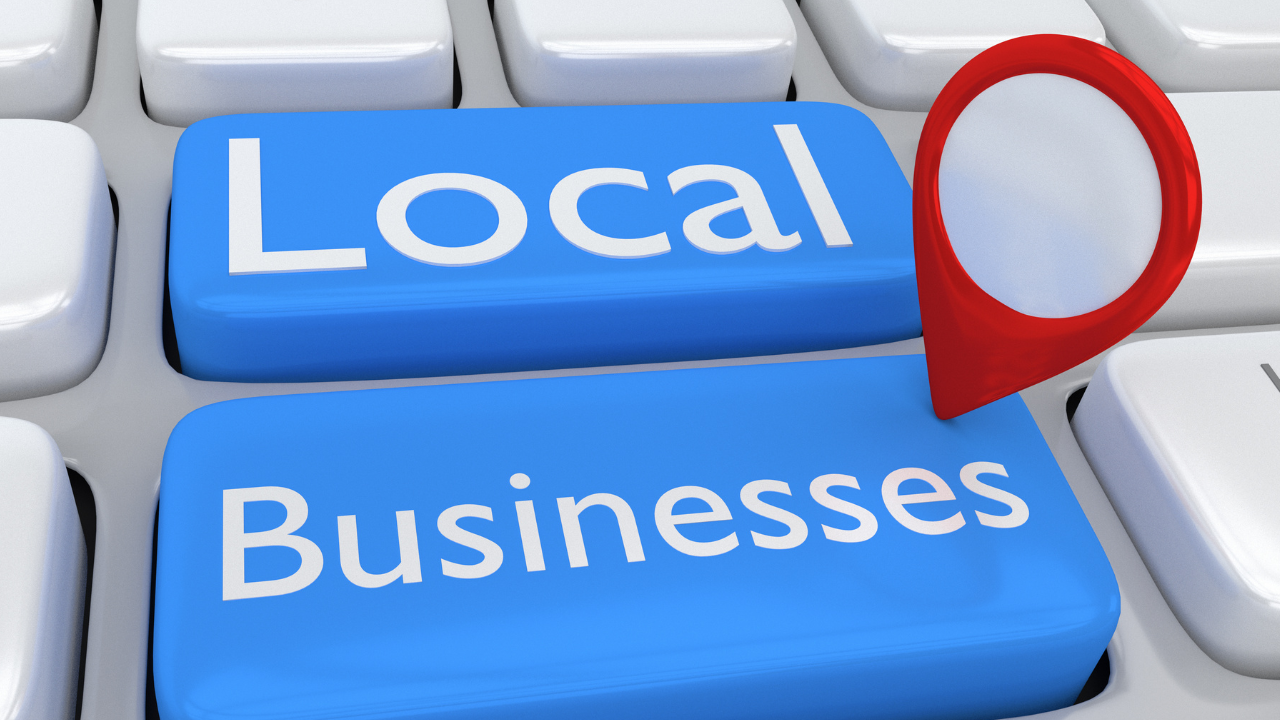
In the digital transformation era, small business owners have a significant advantage when attracting local customers. Local SEO (Search Engine Optimization) and hyperlocal marketing are essential strategies to ensure your small business stands out from the competition and gets noticed by people nearby. In this post, we're exploring some tips and tricks to optimize your small business website and digital presence so you can boost your sales and get more foot traffic.
Google My Business (GMB) Optimization
To attract more local customers, one of the most crucial steps is setting up and optimizing your Google My Business (GMB) profile. Claim your business listing and make sure all the info is accurate and up-to-date. This includes your address, phone number, operating hours, and a brief blurb about what your biz is all about. Remember to upload high-quality pics of your place and products to make a strong first impression on potential customers. (A picture is worth a thousand words, ...
Perpetual Innovation: Why Small Business Owners Must Think Outside the Box
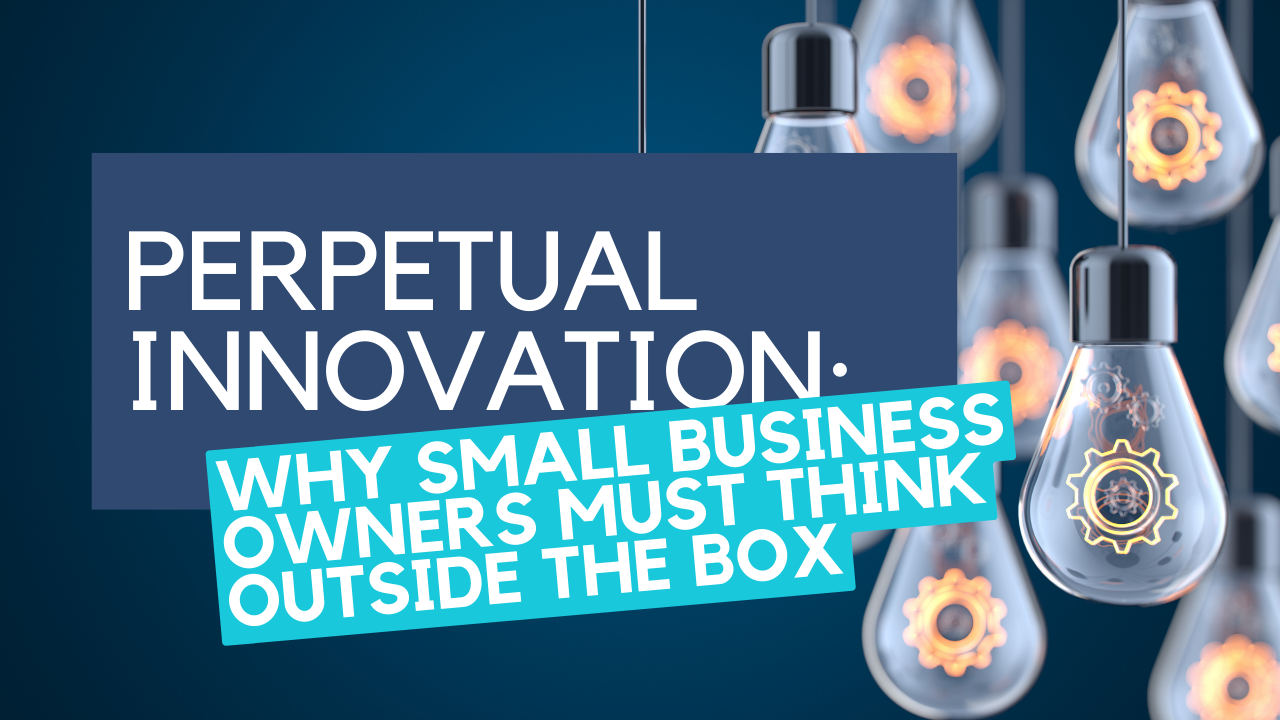
If you're a small business owner, you know how important it is to stay ahead of the game. Thinking outside the box isn’t a one-and-done move, and you can't just rely on what's worked in the past or stick to the same old ideas. You've gotta keep evolving and finding new ways to stand out from the competition. Perpetual innovation, friends. If you’re not changing…you’re falling behind.
Today, we’re going to take a look at the importance of continuous innovation for small business owners and provide practical steps you can take to ensure you stay ahead of the competition.
The Dangers of Complacency
Not to be overly dramatic, but complacency is a silent assassin that gradually erodes a business's competitive edge. Complacent = stagnant = failure to adapt to the evolving needs and preferences of customers and missing out on some serious growth opportunities. A lack of innovation leaves you vulnerable to emerging competitors who are eager to disrupt the market with fresh ideas and ...
The Art of Effective Leadership

A company is only as good as its team.
And a team is only as good as its leader.
Shitty leader = shitty team = shitty revenue = shitty growth. You see where we're going with this, right? While there might be some exceptions to this rule, the fact remains that if you want a strong team and a thriving company, you need to lead by example. A great leader gets shit done. They inspire people and motivate employees to reach their full potential.
Here are eight ways you, too, can be a more effective leader.
Effective Leaders Lead by Example:
Actions speak louder than words. That means practicing what you preach, being honest, accountable, and not asking others to do what you're unwilling to do yourself. Set the tone for your team by exemplifying the qualities and behaviors you expect from them. Your employees will be inspired to step up their game when they see you stepping up yours.
Effective Leaders Communicate with Clarity:
We've recorded many episodes on the topic of communi...
Finding the Sweet Spot: 7 Tips for Entrepreneurs to Grow Smart and Stay Strong
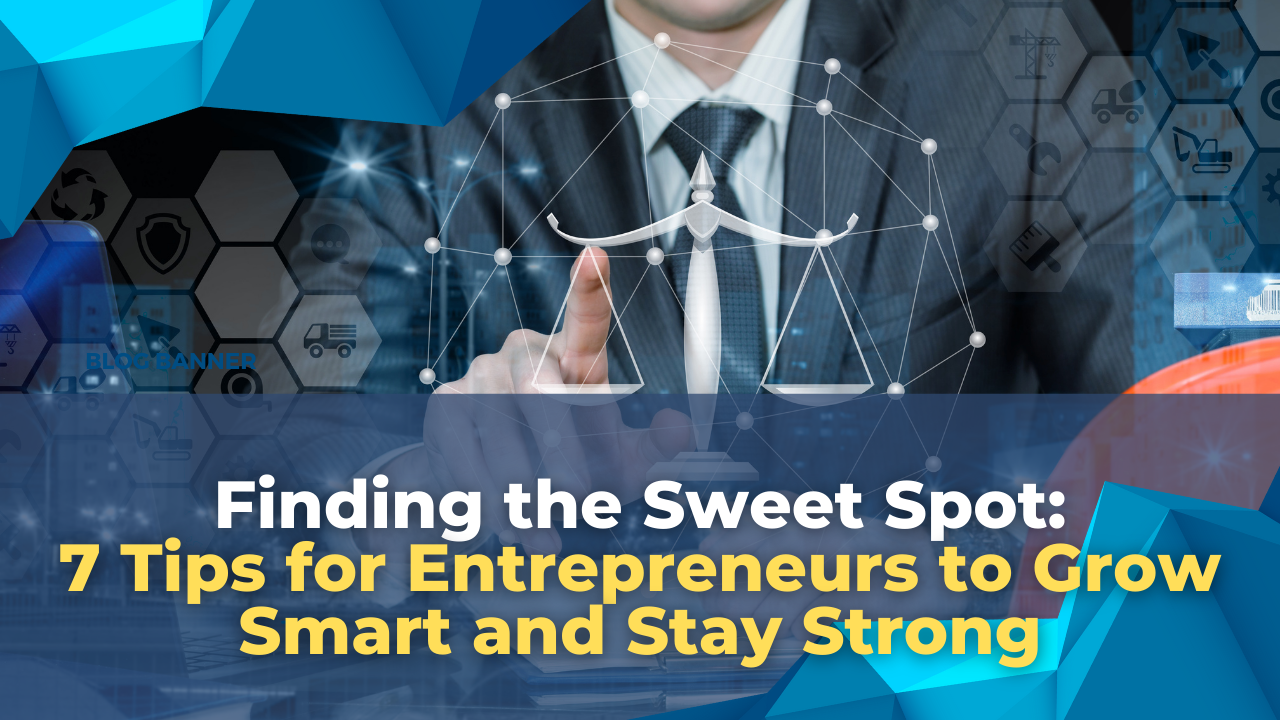
As business owners and entrepreneurs, we're always looking to take our biz to the next level. But we need to be smart about it. It's not just about growing as fast as possible - we need to make sure we're building something that'll last. Trying to grow too quickly could lead to some serious roadblocks. That's why we've got seven tips to help you keep your business on track and avoid burning out too soon.
1. Get Your Vision Straight:
If you want sustainable growth, it's important to know A) what you want to achieve and B) what you stand for. That means figuring out your purpose, values, and goals and making sure everyone on your team is on the same page. By doing this, you'll be able to make smarter decisions, keep everyone focused, and avoid deviating from your core values.
2. Build a Kickass Company Culture:
Don't underestimate the importance of a strong and positive company culture. That means encouraging open communication, collaboration, and innovation among your team. Le...
Striking the Balance: Work-Life Harmony for Business Owners and Entrepreneurs

As business owners and entrepreneurs, we are often consumed by our passion for our ventures, working tirelessly to bring our dreams to life. And so it’s no wonder it’s so easy to neglect the importance of work-life balance. However, maintaining a healthy equilibrium between our professional and personal lives is crucial for long-term success and overall well-being.
Here are two primary reasons why work-life balance matters:
- Sustainable Success: Achieving work-life balance is not just about feeling good right now, but it’s also about setting yourself up for success in the long run. If you consistently neglect personal well-being, you’ll end up feeling burnt out, get less done, and (probably) start making poor choices. Striking a balance allows you to maintain energy levels, enthusiasm, and creativity, enhancing your long-term professional achievements.
- Improved Health and Relationships: A healthy work-life balance promotes physical and mental well-being. It reduces stress, anxie...
Unveiling the Secrets of Consumer Learning: A Guide for Small Business Owners
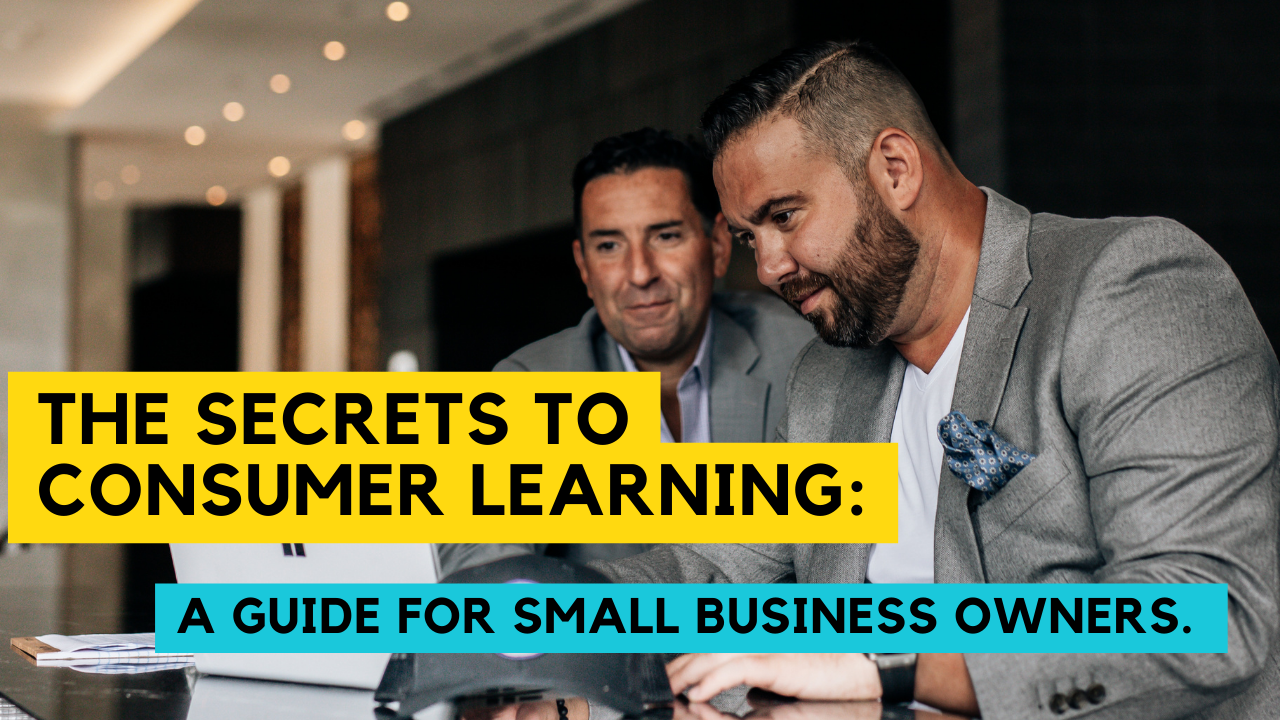
In the ever-evolving world of consumer behavior, small business owners face a continuous challenge in understanding how consumers want to learn about products. In fact, research shows that almost 90% of consumers view the experience the company provides as JUST AS important as the product or service they’re selling. That’s huge.
To thrive in a competitive market, it is vital for businesses to adapt and cater to the changing preferences of consumers. Here’s a look at some specific examples of how consumer learning has transformed, along with some actionable tips for small business owners to effectively promote their products or services with the customer experience in mind.
Embrace the Power of Digital Platforms:
This first point is hardly surprising (but still worth addressing), and that is the significant shift in consumer behavior towards digital platforms. Consumers now turn to websites, social media, online reviews, and search engines to gather product information. (RIP Y...
Thriving on the Edge: Why Smart Risk-Taking Sets Business Owners Apart

Being a business owner is like riding a roller coaster; there are plenty of exhilarating highs…and just as many stomach-churning lows. You’ll be having the time of your life one minute, and the next, you’ll think, WTF am I doing? You need a strong stomach, be willing to take risks, and accept that the whole thing might crash and burn.
Of course, that’s easier said than done. Because it’s one thing to TALK about hypothetical dollars used, resources exhausted, hours spent, and all the what-ifs and maybes.
It’s quite another thing to put all that talk into action.
But that’s what separates the Greats from the Really Greats. You think Elon, Bezos, or Jobs achieved what they did from pure dumb luck? Hardly. They took calculated risks. They were willing to push boundaries and redefine what is possible. And while your plans might not be as ambitious as starting your own aerospace or logistics company, you can still take a page from their books. They recognized the perils of playing it s...
Hiring 101: Questions to Ask (and NOT Ask) for Finding the Perfect Fit
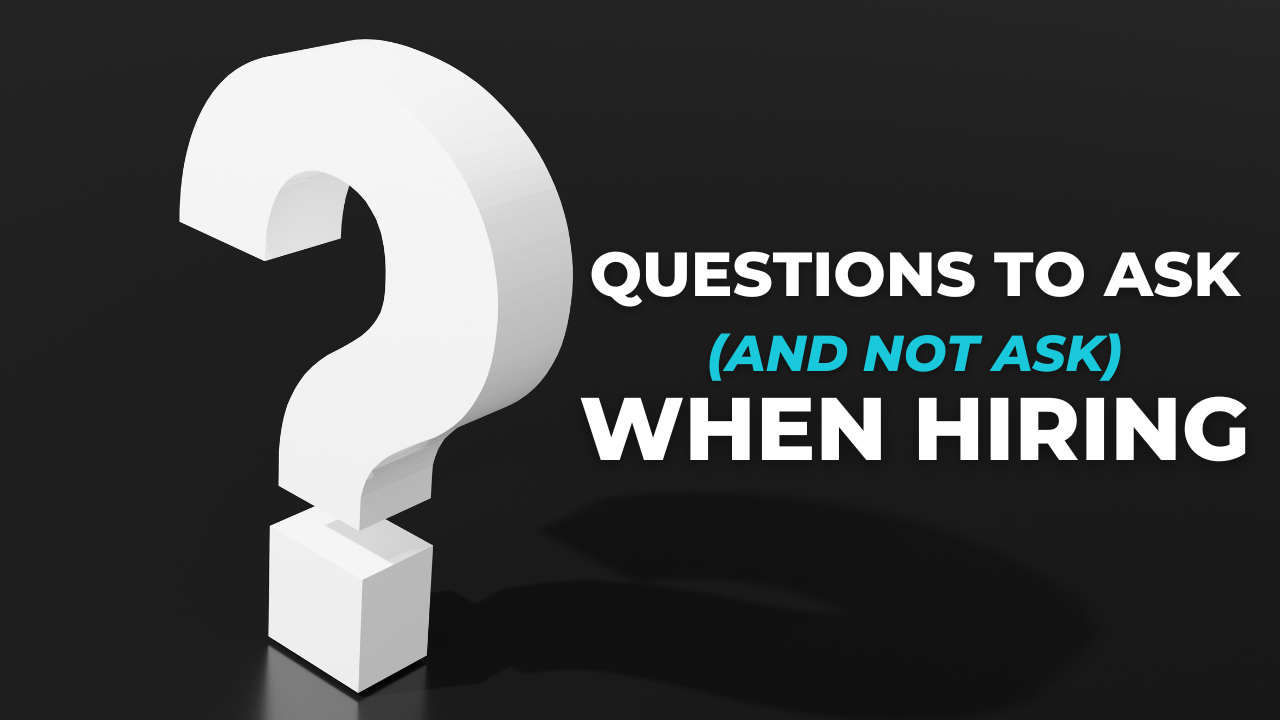
Finding the right employees can be like a game of Where’s Waldo. Sometimes you’ll spot them right away, but more often than not, you’ll spend a maddening amount of time trying to see past a chaotic mass of nonsense and distractions.
While there’s no shortcut to building a team of A-players that embodies your company’s vision and values, there are certain strategies you can use to cut through the clutter. Today, we will look at five questions you should always ask, five questions you should never ask, and five questions to consider asking to help you locate the ideal candidates for your business.
Five Questions You Should Always Ask
- "Tell me about your experience relevant to this role." This classic question allows candidates to showcase their skills and expertise directly related to the position. Look for alignment between their experience and your business needs, like finding the missing puzzle piece that completes the picture.
- "How do you handle challenges or confli...
The Power of the Slogan

"Good to the last drop."
"Snap! Crackle! Pop!"
"Taste the rainbow."
"Just Do It."
"Easy, breezy, beautiful…"
"You're in good hands."
If we were to put money on it, we'd wager you know exactly which companies we're talking about. Without mentioning names, your mind immediately went to the businesses they represent.
That is the power of the slogan.
Creating a strong brand identity is critical for success in today's competitive business landscape. Everyone wants a piece of the same pie, but there are only so many slices to go around. If you don't want to go hungry (both physically and metaphorically), you've got to position yourself strategically within your industry to "secure your slice" and avoid being left behind.
A well-crafted slogan is an essential tool to help you reinforce your brand identity. It can help you capture the attention of your target audience and serve as a concise representation of your unique selling proposition, offerings, values, and purpose.
...



